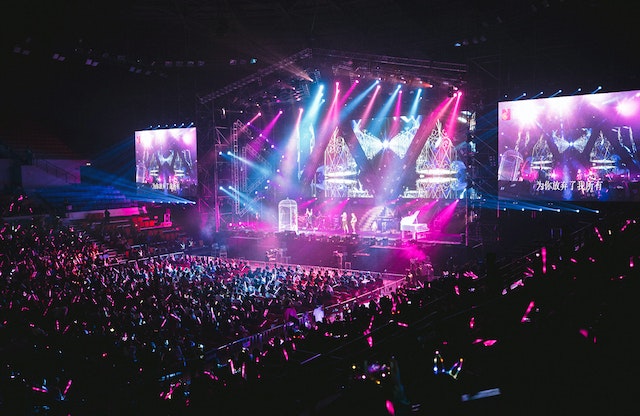Welcome to the dynamic world of large-scale NYC events, where the lively energy of the best outdoor concerts happening in New York this summer meets the complex nuances of event management! Success in these massive gatherings lies in smooth logistics, with every detail working cohesively to craft unforgettable experiences. From grappling with New York’s notorious traffic to synchronizing with various vendors, this blog post serves as your roadmap. So, buckle up and prepare to navigate the logistical labyrinth of these monumental city events effectively.
Understanding Logistics for Large-Scale NYC Events
New York City, fondly dubbed “The Big Apple,” boasts a vibrant event landscape, pulsating with a wide variety of cultural, social, and corporate occasions. From Time Square’s New Year’s Eve bash to the NYC Marathon, these large-scale events echo the city’s dynamism, drawing thousands, if not millions, of attendees from all corners of the globe. However, this exciting tapestry of events also presents many unique logistical challenges.
As the wedding season is here, managing large-scale events in New York becomes an intricate dance of various logistical elements. Some hurdles include the city’s busy transportation system, stringent regulations, myriad venues, and event-challenging layout. The diversity of the city’s demographic and cosmopolitan attendees further intensifies crowd management issues. Each event, like a unique puzzle, requires a custom-tailored approach to logistics. It’s a testament to the famous adage—only in New York!
The Logistics Roadmap: A Comprehensive Planning Strategy
Foresight and detailed planning are the pillars of success in the intricate world of large-scale NYC events. Early planning mitigates potential pitfalls and ensures all gears mesh seamlessly on the big day. It provides ample time for resolving unforeseen complications while guaranteeing everything from the event layout to the supply chain functions like a well-oiled machine.
The planning process must cover multiple factors. These include venue selection, crowd control strategies, vendor coordination, and transportation planning. Tools and software can simplify this process. They transform daunting tasks into manageable ones. Using event management platforms, task trackers, and logistics software is beneficial. These tools aid in allocating resources, improving communication, and monitoring progress in real-time. This empowers event organizers to tackle the logistical challenges of large-scale NYC events effectively.
Tackling NYC’s Transportation and Traffic
You should know that event planners can benefit from storage to manage the logistical challenges of large-scale events in New York City. Understanding the intricacies of NYC’s transportation system, encompassing subways, buses, taxis, and pedestrian pathways, is crucial. It influences attendee travel, equipment transportation, and emergency services access. Strategic planning is necessary to navigate the city’s notorious traffic and minimize disruptions. Incorporating public transportation options, and encouraging attendees to utilize subways and buses, can help alleviate congestion. Collaborating with ride-sharing services and connecting with transportation authorities provide valuable insights for efficient route planning and smoother event logistics management.
Ensuring Smooth Crowd Control and Security
Ensuring robust crowd control and security is paramount in large-scale NYC events. Effective management helps prevent chaos, enhances safety, and provides a better experience for attendees. Implementing best practices such as well-marked entry and exit points, clear signage, and trained personnel is crucial. Furthermore, collaborating with local law enforcement is invaluable. Their expertise can contribute to developing a thorough security plan, and their on-site presence is a deterrent to potential disruptions. In essence, crowd control and security are vital cogs in the wheel of successful event management.
Managing Event Vendors and Services
Choosing the right vendors and service providers significantly influences the quality of a large-scale NYC event. Ensuring they align with your event’s vision and budget is key. Once on board, effective coordination between various vendors becomes essential to avoid confusion and provide timely service. Challenges such as communication gaps, last-minute cancellations, or unexpected cost variations can arise. Tackling these requires clear contracts, maintaining open lines of communication, and having backup plans, ensuring a smooth and successful event despite potential vendor-related hiccups.
Navigating NYC Permits and Regulations
Navigating NYC’s permits and regulations is essential to planning large-scale events. Familiarity with the city’s permit system, including noise, food service, and public space usage requirements, is crucial. The process for obtaining these permits should start early, as they often involve deadlines and detailed applications. Complying with local laws, like crowd control regulations and safety standards, is non-negotiable. Having a clear grasp of these aspects ensures legal compliance and the smooth functioning of your event, contributing to its overall success.
Post-Event Management: Clean-up and Debrief
For example, when planning an outdoor event in New York City, post-event management becomes a critical but frequently neglected aspect. A well-executed clean-up preserves the venue’s integrity and showcases your event’s dedication to sustainability. Implementing strategies like designated waste disposal areas and enlisting professional clean-up services can streamline the process efficiently. Equally vital are debriefing sessions after the event. These sessions offer an opportunity to evaluate performance, recognize achievements, and identify areas for enhancement, fostering a culture of continuous improvement in future endeavors.
Conclusion
Managing logistics is pivotal to executing successful large-scale NYC events. Key aspects include:
- Strategic planning.
- Understanding NYC’s transportation.
- Effective crowd and vendor management.
- Adhering to city regulations.
And let’s not forget the importance of post-event management. While these tasks are complex, they also present an opportunity to learn and create memorable experiences. Embrace these challenges and remember: you’re not just organizing an event but adding to NYC’s rich event tapestry.
